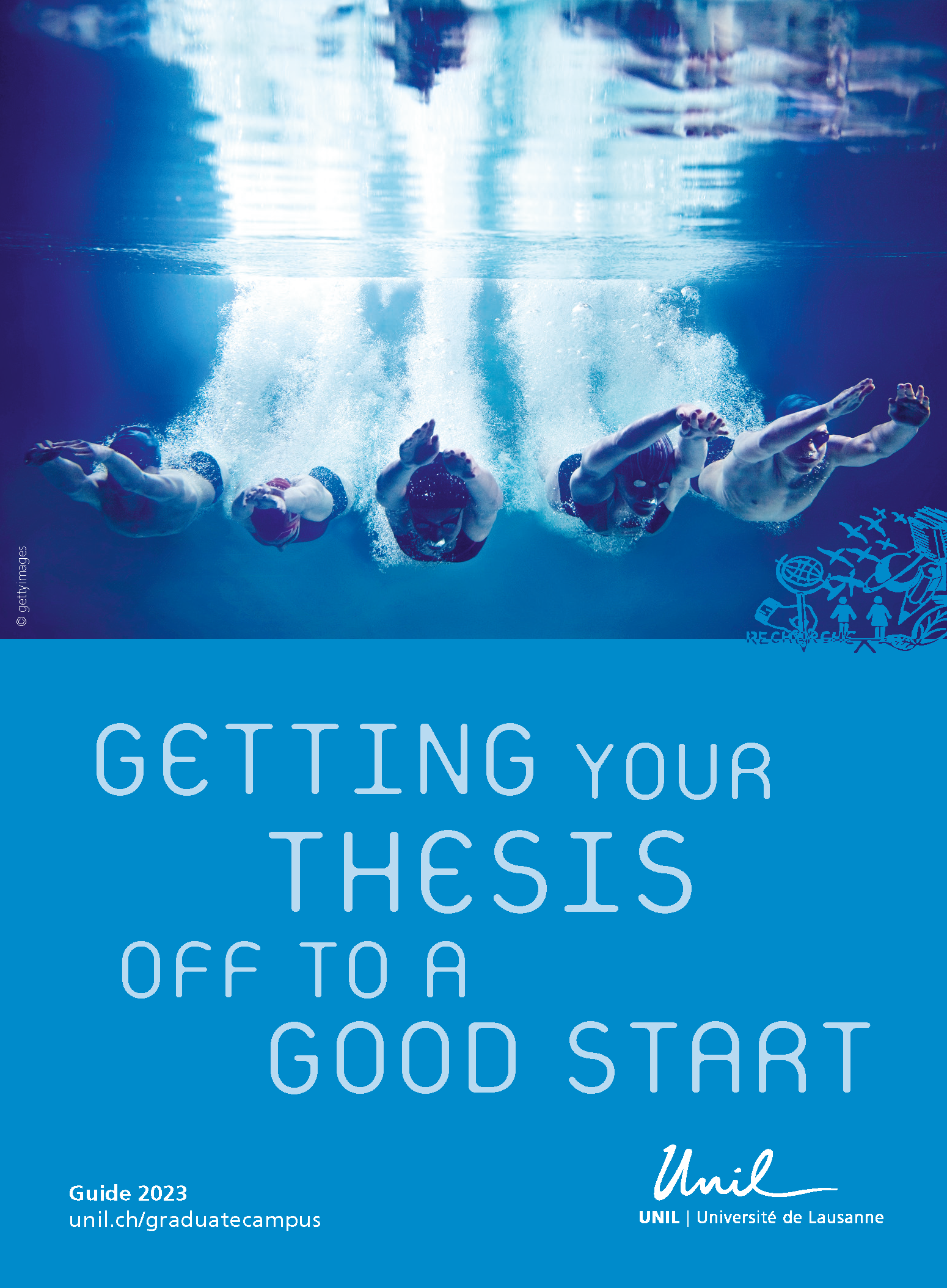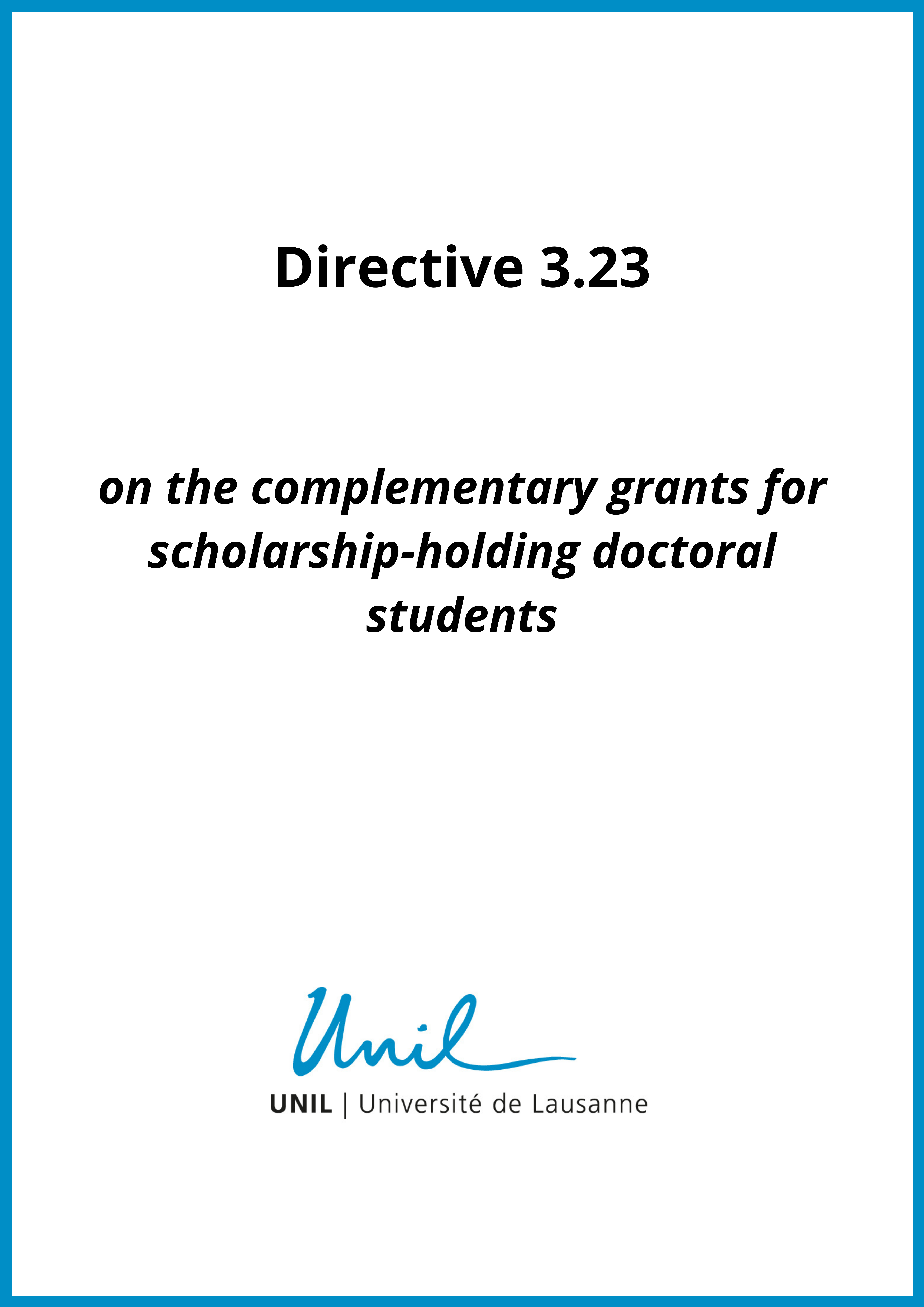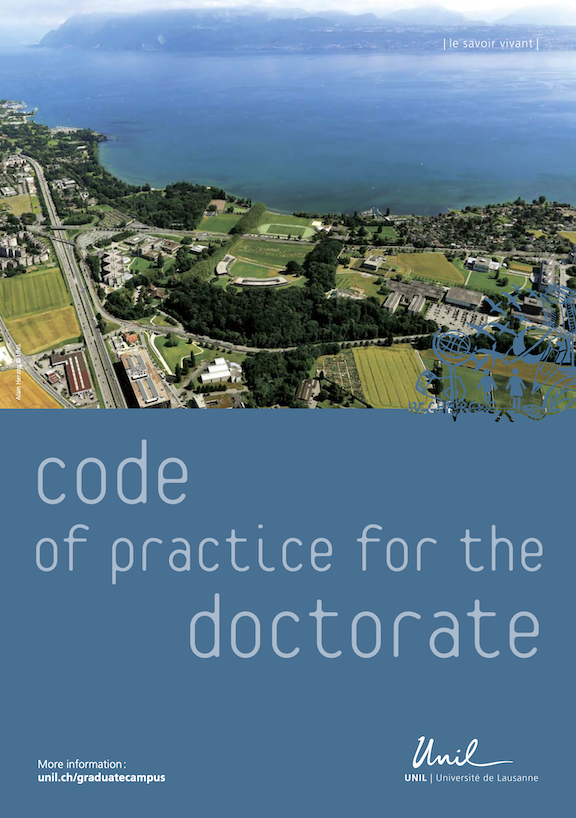Before starting a PhD, it is essential to have sufficient and sustainable financial resources for the entire duration of your thesis.
To ensure the best research conditions, the University of Lausanne asks your thesis supervisor to discuss the funding of your doctorate with you before agreeing to supervise you. Your thesis supervisor undertakes to do this by signing the doctorate form (the attestation de thèse). This document is provided by the admissions office (the Service des immatriculations et inscriptions). See art. 4.6 of the Doctoral Charter.
Ideally, to live in Switzerland, a single person will need CHF 2,500 per month. See the Budget section below.
There are four ways to fund your doctorate:
1. You are hired as a doctoral assistant, or teaching assistant.
Your work at UNIL will be divided between your thesis and assistantship activities (teaching, research, administrative work) at the service of the institution (faculty, institute, department).
2. Your thesis director submits a project to the SNSF (or other external funding) and recruits you as a doctoral researcher.
You are hired by UNIL on third-party funds, and you can devote yourself entirely or mainly to the research project (no or little assistantship activity for the institution).
For the first two categories, job vacancies are regularly advertised on the UNIL website.
To know more about the pay scales for doctoral assistant and FNS doctoral researcher positions at UNIL, please see the "Pay scales" tab on the Human Resources website.
3. You decide to do your doctorate in parallel with an activity outside UNIL.
The balance between an outside paid activity and a doctorate must be carefully considered, and discussed beforehand and then regularly with the person supervising the thesis. Indeed, the time devoted to research will be more limited than in the case of a position at UNIL. This will need to be taken into account when planning the stages of the thesis, and it's important that the supervisor who agrees to supervise your doctorate is aware of this.
4. You obtain financial support, such as a grant or scholarship.
A number of institutions and foundations offer grants or scholarships for research. However, the amounts awarded are often limited, and sometimes only for specific conditions (participation in a conference, one-off support for research costs, etc.). For further information, see Resources and Contacts below.
For those already in receipt of a grant of less than CHF 2,500/month and for a minimum duration of three years, please see the Complementary Grants section below.
In all cases, a budget covering the entire doctorate, together with a schedule, should be drawn up before the start of the doctorate and updated regularly.
Doctoral researchers receiving a scholarship to dedicate themselves entirely to their thesis for a minimum of three years, and where the awarded amount is less than CHF 2,500, may apply for a complementary grant. Details can be found in Directive 3.23.
To obtain the complementary grant, doctoral researchers must meet the following conditions:
- Be registered as a doctoral researcher at UNIL
- Be resident in Switzerland
- Have obtained a scholarship to dedicate themselves fully to their thesis for at least 3 years
- Not already have additional remuneration from the institution to which they are attached to do their thesis
The scholarship must have been awarded by a state or university organization. The following awards are currently recognized:
- Swiss Government Excellence Scholarship / Bourse d'excellence de la Confédération suisse
- China Scholarship Council
- Scholarship from the Republic of Indonesia
To apply, complete the form below and attach the necessary documents.
Application form for a complementary grant
The cost of living in Switzerland is often far greater than the costs linked directly to the doctoral degree.
The budget provided below provides a reference point for estimating a single person’s financial needs throughout the doctorate (other expenses, particularly family expenses, may be added).
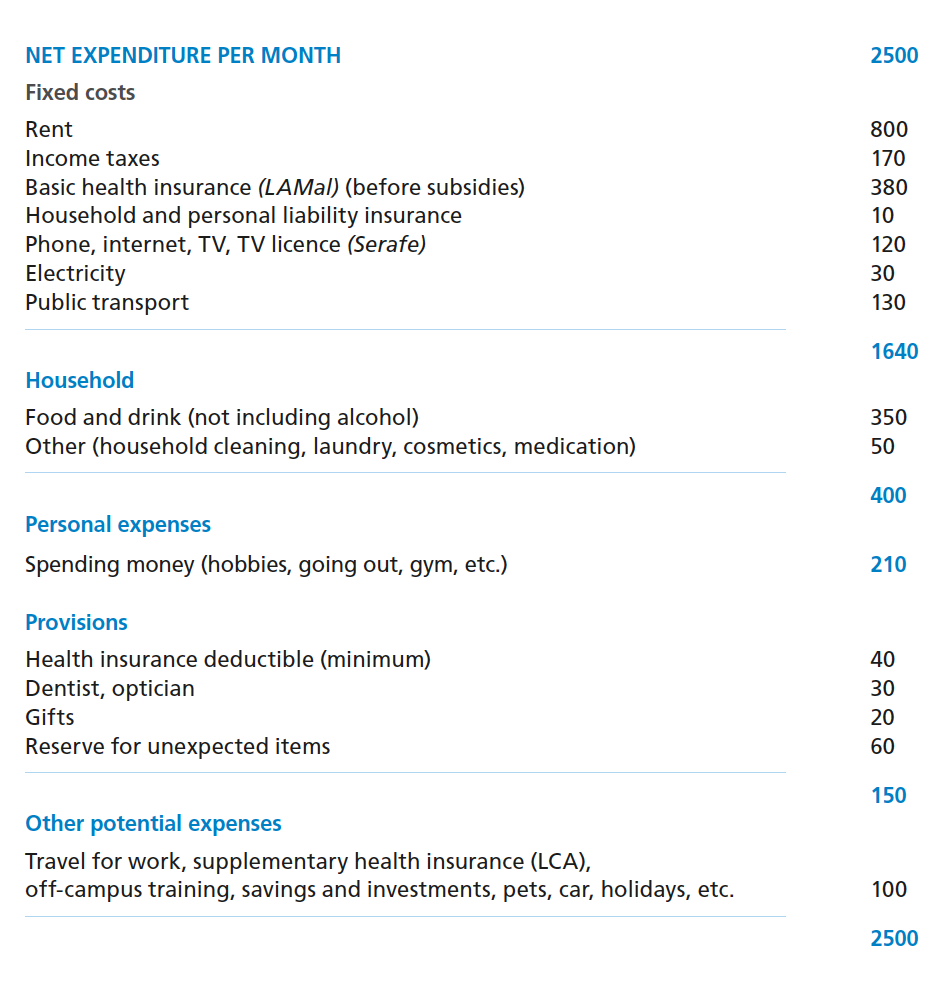 Source : Association faîtière Budget-conseil Suisse (2023/24). budgetberatung.ch (DE, FR, IT)
Source : Association faîtière Budget-conseil Suisse (2023/24). budgetberatung.ch (DE, FR, IT)
In addition to the budget of CHF 2,500/month for your day-to-day living, as shown in the table above, the doctorate generates specific costs. First of all, there are registration and exam fees that will be at your expense:
 Note: anyone who does not hold a Master's degree from a Swiss higher education institution must additionally pay a CHF 200 fee when submitting their registration to the Admissions Office. This fee covers the evaluation of their file.
Note: anyone who does not hold a Master's degree from a Swiss higher education institution must additionally pay a CHF 200 fee when submitting their registration to the Admissions Office. This fee covers the evaluation of their file.
When it comes to the costs in the table below, who pays them will depend mainly on your employment status during the doctorate.
If you have a doctoral assistantship position, most of the costs related to research tools (fieldwork, computer equipment, licenses, books, conferences) will be at least partially covered by the institution or faculty budget.
This situation is different if your thesis is self-funded, if you are employed elsewhere, or if you have a scholarship. In these cases, most of the costs are at your expense, unless an agreement has been made with your thesis director.
Nevertheless, ask whether your faculty (institute/department) has funding to cover some of these costs. You can also apply to private foundations or funding bodies to cover some of the costs listed below.
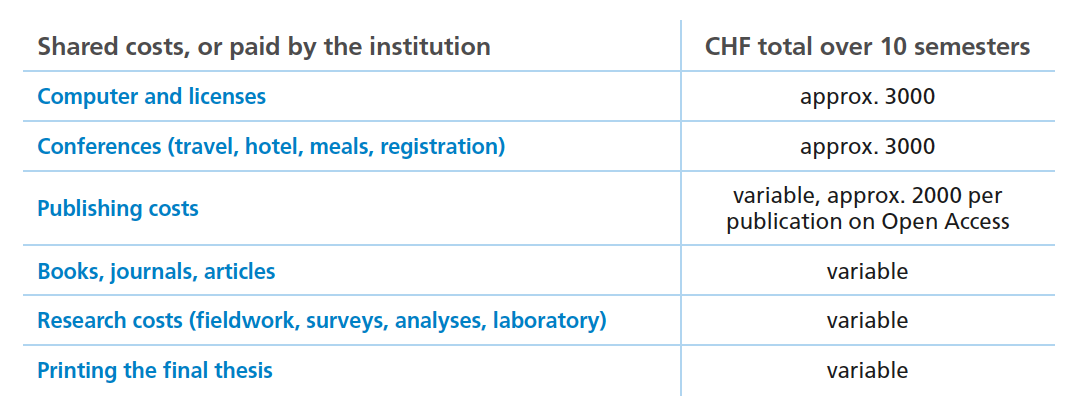
To know more about the pay scales for doctoral assistant and FNS doctoral researcher positions at UNIL, please see the "Pay scales" tab on the Human Resources website.
For more information on funding for thesis mobility, please see PhD Mobility.
Tables and text from the guide "Getting your thesis off to a good start":
If you have any questions about funding your doctorate, the following people and services can help you:
1. Faculty contacts regarding research
2. Foundations hosted at the UNIL Rectorate
Contact: Research Support

